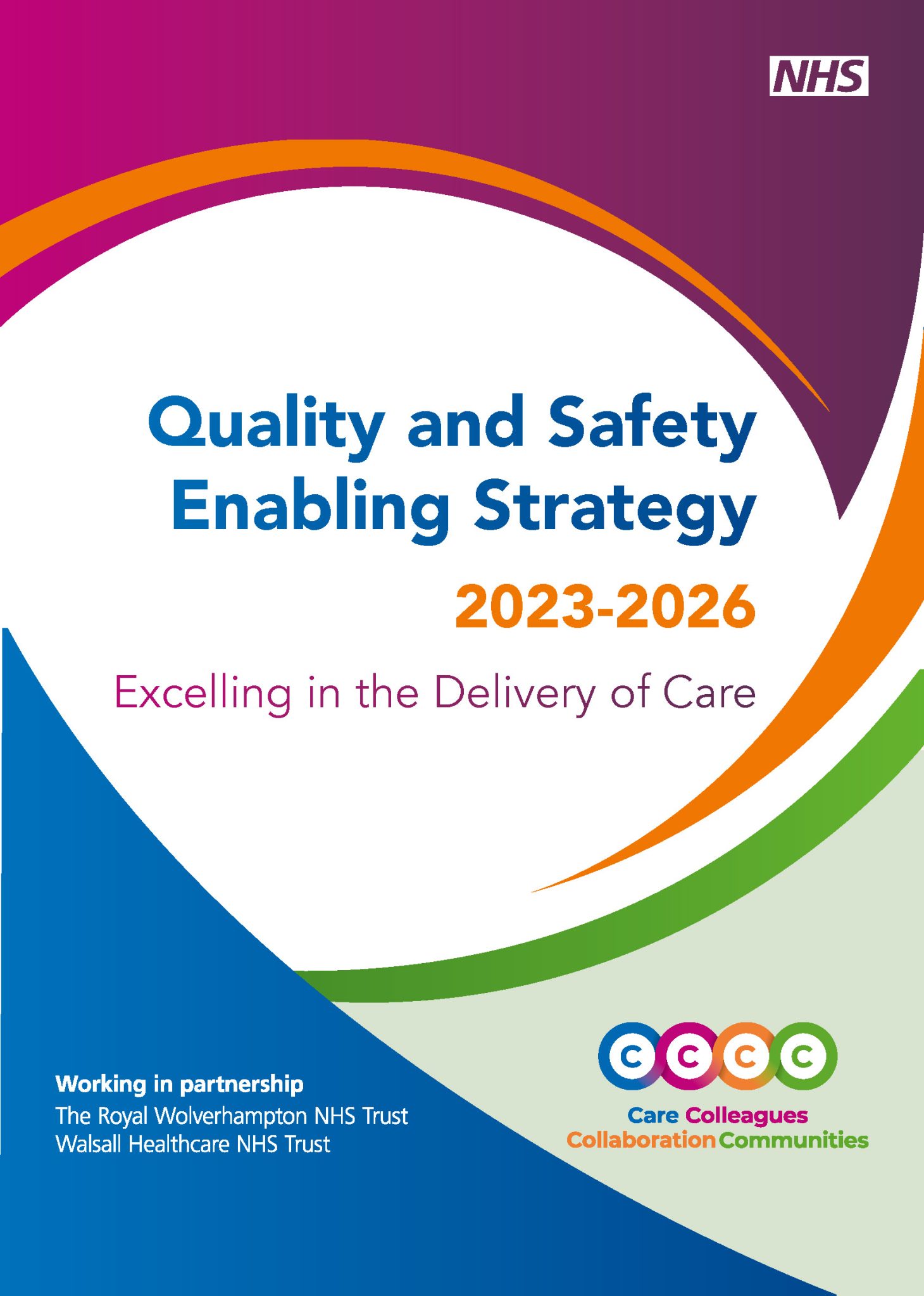This week I am pleased to promote the Quality and Safety Enabling Strategy which defines how we will strive to excel in the delivery of care – one of the four strategic aims of the joint Trusts’ Strategy.
Its development was led by Martina Morris, Deputy Director of Nursing, and it is the first joint strategy for The Royal Wolverhampton NHS Trust (RWT) and Walsall Healthcare NHS Trust (WHT).
As part of the closer working relationship between the two Trusts, we aim to deliver exceptional care together to ensure the communities we serve are provided with the safest, high-quality and evidence-based care.
This strategy describes the aspects we will focus on, including the success measures, to drive continuous improvement in quality and safety.
The document is informed by, and aligned to, the key joint drivers such as the Trust Strategy, the Patient Experience Enabling Strategy (2022-25), Quality Framework (QF) for Nursing, Midwifery, Health Visitors and Allied Health Professionals (2023-25), Quality Accounts (2021-22), National Patient Safety Strategy (2019) and the NHS Long Term Plan Priorities (2019).
To shape this document, we have used recent feedback received from staff, patients and the public as part of the Trusts’ Strategy, QF, Patient Experience Enabling Strategy and Quality Accounts. This is to ensure what matters to our staff and patients is reflected in it and used to formulate our long-term commitment and improvement plans.
This is our commitment to quality and safety and ensuring we work with staff and patients as our joint partners to improve patient outcomes and their experience.
Key priorities include:
- Our people
- Embedding a culture of learning and continuous improvement at all levels of the organisation
- Prioritising the treatment of cancer patients, focused on improving the outcomes of those diagnosed with the disease
- Delivering safe and responsive urgent and emergency care in the community and in hospital
- Delivering the priorities of the National Elective Care Strategy
- Delivering financial sustainability by focusing investment on the areas that will have the biggest impact on our communities and populations
- Fundamentals – based on internal and external priorities, which include:
- Prevention and management of patient deterioration
- Timely sepsis recognition and treatment
- Medicines management
- Adult and Children Safeguarding
- Infection Prevention and Control
- Eat, drink, dress, move to improve
- Patient discharge
- Maternity and Neonates
- Mental Health
- Digitalisation
The Quality Governance Assurance Committee at RWT and Quality, Patient Experience and Safety Committee at WHT will have overall oversight of progress with key priorities and receive an annual update on progress.
Taking into consideration the wide breadth of programmes of work informing the key priorities of this strategy, individual actions and success measures will form part of the existing programmes and their delivery plans, rather than there being a separate delivery plan.



